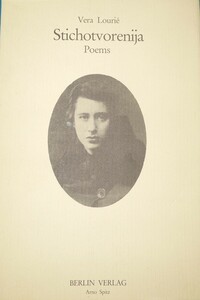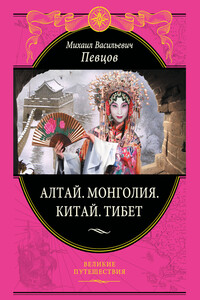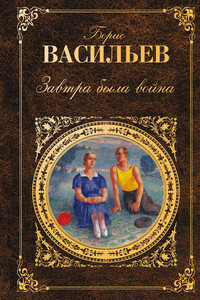Thomas R. Beyer. Introduction
Vera Lur’e, the poetess, member of the «Sounding Sea-Shell», is living in Berlin (Charlottenburg, Neue Kantstr. 48). Until October 1921 she was in Petrograd, where she was first published in the collection Sounding Sea-Shell. She has prepared for publication a collection of poems.
The collection of poetry announced over sixty years ago in Novaja Russkaja Kniga in 1922 has at last been printed. For six decades the poems which chronicle a young Russian girl’s journey through life have been safeguarded in the slim, tattered notebooks in her bottom desk drawer. Almost everything else is gone: the books with the inscriptions by famous Russian authors of the 1920’s, the newspaper clippings and journals containing her articles, reviews and poems. Only the memories arrested in time by the poet’s gift remain. They are an affirmation of her only real profession and her first love-poetry.
The excitement of the House of the Arts in Petrograd is long gone. The charged intellectual atmosphere of «Russian Berlin», the glorious days between 1921 and 1923 when almost all of Russia’s literary giants resided in or visited Berlin are past. Berlin — the center of Russian language publishing, home to dozens of Russian newspapers and scores of journals, is now an almost forgotten footnote in the history of Russian literature.
Vera remembers that time when she was an active participant in Russian cultural life. And when almost all the others departed Berlin in 1923, Vera remained. After three quarters of a lifetime spent in Berlin, she is as much a part of that city as she once was of Saint Petersburg. She is a unique witness and her poetry eloquently records for us the history of «Russian Berlin».
Vera Osipovna Lourie (Lur’e) was born in Saint Peterburg on April 21, 1901 (N.S.). Her father was a physician with his own clinic on Goroxovaja Street. Her mother, Maria Pavlovna Schessin (Xessin), was the daughter of a wealthy stock broker. Vera was raised in the comfortable and sheltered atmosphere of the well-to-do and spent her first years in a house on the Fontanka and later at 48 Morskaja Street. A Swedish nanny, an Estonian governess and later a private tutor shepharded her through childhood and shielded her from the outside world, where everything was «dangerous».
At the age of twelve Vera entered the third grade of the Taganceva Gymnasium, an exclusive school for girls. Because of the Revolutinon she completed only the seventh of eight classes. From early childhood she was exposed to an international perspective because of her travels with her family. Summers were often spent at the picturesque health resorts of Germany and the outbreak of World War I found the family in Switzerland, from where they were forced to undertake a roundabout journey of train and ship to Odessa and then home to Petrograd.
The revolutions of February and October 1917 brought new found freedom to Vera, so longed for by her young spirit, but at a considerable price. The first step in her literary career came when she began to visit the Dom Iskusstv (House of the Arts) in Petrograd. The House was officially opened on December 19, 1919 to provide for the material needs of Russian writers and artists and atmosphere in which their creative work could continue and flourish. There were regular meetings on Friday evening and lectures on Monday, in which some of the leading figures of the day participle Korneiy Chukovkij, Maksim Gorkij, Evgenij Zamjatin, the poets Andrej Belyj, Aleksandr Blok, Nikolaj Gumilev and the critics Boris Ejxenbaum and Viktor Shklovskij. In addition, several «studios» were opened based on the model established by Gumilev in the spring of 1919 at the World Literature. By September of 1920 over three hundred fifty students were enrolled and several new sections ware added.
Vera attended the studio of the famed director Nikolaj Evreinov on the «Philosophy of Theater» and the poetic studio of Gumilev. Gumilev was one of the maior figures of Acmeism and his simplicity of structures, world selection and rhythms can all be felt in the poetry of his student. Vera was clearly infatuated by him, flattered by his attentions and remembers fondly how Gumilev spent the evening of April 21, 1921 celebrating her twentieth birthday at her home.
Gumilev was also the guiding spirit of a group of young poets who called themselves Zvuchashaya Rakovina (Sounding Sea-Shell), which included along with Vela Lur’e, Nikolaj Tixonov, Konstantin Vaginov, Georgij Ivanov and Irina Odoevceva. In the group’s collection «dedicated to the memory of our friend and teacher N.S. Gumilev» of which only 1000 copies were published in Petrograd in 1922 can be found three of Vera’s earliest poems, and her only poems to be published inside of Russia: «My body aches from sleplessness…» and «The church transparent from the sun…»
The poet’s association with Gumilev came to a tragic and shock ing end for the twenty year old girl, Returning from a meeting of the Sounding Sea-Shell in early August 1921 Gumilev was arrested. Just a few days later Aleksandr Blok, the shining light of Russian poetry, died. Vera along with the literary elite ol Russia attended his tuneral and a few weeks later would attend services in the Cathedral of Kazan for Gumilev who had been executed by the Soviets.



